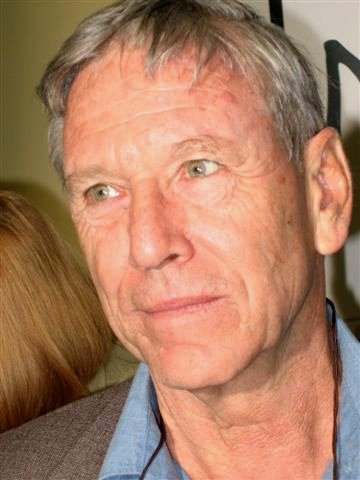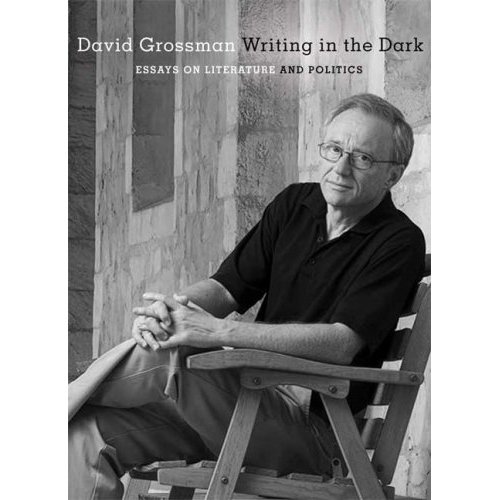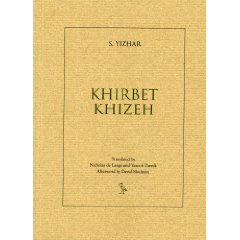Book Commentary: Fear of Translation
by Bill Marx
The newspaper “Haaretz” recently reported that the family of George Khoury, an Israeli Arab student killed in a 2004 terrorist attack in Jerusalem, responded to his death with a generous gesture – it has helped finance a translation into Arabic of Israeli writer Amos Oz’s powerful 2003 memoir A Tale of Love and Darkness. Who could argue against an effort to nurture cultural understanding through the translation of contemporary Hebrew literature into Arabic and vice-versa?

Amos Oz — Only three books by this major Israeli author have been translated into Arabic.
Alas, the naysayers are out there, casting aspersions on opening lines of communication. The “Haretz” Talkback column includes some who praise the donation (“Why not take something good for once? The Arabs will have access to a great book that hopefully will change some minds.”) along with knee-jerk accusations damning it as either cynical or fruitless. For those who feel that literature has lost its punch, the resistance to translation in the Middle East and elsewhere around the world offers refreshingly indirect testimony to the power of literature to undercut intellectual and emotional paralysis, the banal pleasures of stasis.
A Tale of Love and Darkness’s Arabic translator, Jamal Gnaim, says the volume represents “Oz from the point of view of his language and associations, and Hebrew literature and Zionist thought, and it’s important that others get to know this milieu.” Yet the article notes that only two other books by Oz, a major Israeli writer and thinker, have been translated into Arabic: My Michael and Soumchi. This raises provocative questions about the politics of translation that don’t get talked about enough: the social and economic decisions and assumptions that shape what is and is not translated. Why the reluctance to make books available? It is not just about fear of disappointing sales figures: literature presents an alternative to the stifling official story in a language that complicates and engages.
Israeli author and peace activist David Grossman makes the case for literature’s merit as a multiplier of perspectives in his fine new collection of essays, Writing in the Dark.
It [literature] helps us to reclaim some of the things that this “situation” tries to relentlessly to expropriate: the subtle, discerning application to the person trapped in the conflict, whether friend or foe; the complex nuances of relationships between people and between different communities: the precision of words and descriptions; the flexibility of thought; the ability and the courage to occasionally change the point of view in which we are frozen (sometimes fossilized); the deep and essential understanding that we can – we must – read every situation from several points of view.
The issue of reading “from several points of view” is not just pertinent to the number of translations in the Middle East. Why did it take over forty years for an English translation of the controversial novel Khirbet Khizeh? Here is a “canonical text, a masterpiece of Hebrew prose” (according to the Afterword by David Shulman) by “the first major writer to describe in credible, unforgettable detail one emblematic example of the expulsion of Palestinian villagers from their homes by Israeli soldiers, acting under orders, at the end of the 1948-49 war.”
S. Yizhar’s book is read argued about in Israeli high schools, and hailed as a major work of art internationally. Yet it has taken until now for a version to appear in English. Ezra Pound said literature is news that stays news: he didn’t warn us that some books contain news we’d rather not read. A small press, Ibis Editions, has published Nicholas de Lange and Yaacob Dweck’s translation, which preserves the delicate stylistic lyrical skin S. Yizhar places over the didactic bones of his powerful study of dehumanization. In the book, Israeli soldiers can’t help but feel empathy for those they are emptying out of a Palestinian village:
Words rang in my ears. I did now know where from. I passed among them all, among those weeping aloud, among those silently grinding their teeth, those feeling sorry for themselves and for what they were leaving behind, those who railed at their destiny and those who quietly submitted to it, those ashamed of themselves and their disgrace, those already making plans to sort themselves out somehow, those weeping for the fields that would be desolate, and those silenced by exhaustion, eaten away by hunger and fear. I wanted to discover if among all these people there was a single Jeremiah mourning and burning, forging a mouth of fury in his heart, crying out in stifled tones to the old God in Heaven, atop the trucks of exile …
Bill Marx is the editor-in-chief of The Arts Fuse. For over three decades, he has written about arts and culture for print, broadcast, and online. He has regularly reviewed theater for National Public Radio Station WBUR and The Boston Globe. He created and edited WBUR Online Arts, a cultural webzine that in 2004 won an Online Journalism Award for Specialty Journalism. In 2007 he created The Arts Fuse, an online magazine dedicated to covering arts and culture in Boston and throughout New England.
Tagged: Amos-Oz, David-Grossman, Featured, Persona Non Grata, World Books



We shouldn’t underestimate the power of translation. I wish I could remember the source of the statistic, but it was recently estimated that Arabic was the language into which the fewest books were translated (at least when the Arabaphone population was taken into account.) Does this represent an ethnocentric lack of curiosity about other cultures? Does it represent a lack of interest by other cultures in being understood by the Arab world?
Historically, it certainly is NOT true that Arabic was the language that into which the fewest books were translated– fortunately for the West, because it was through Arabic translations that many of the works of ancient writers were preserved.
Because so few Westerners know Arabic, modern, educated Arabic-speakers are almost always fluent in one or more European languages. Hence there is far less need for translations into Arabic than there is in the other direction. Arabic-speaking people represent a vast range of attitudes and even geographic locations, so any lack of translations should not be taken as indicating any particular point of view.
It is also important to point out that, even within the Arabic world, there is a wide range of dialects. A large portion of Muslims, moreover, are not native Arabic speakers and know Arabic only as the classic language of the Qu’ran, much as most Jews know Hebrew. Even within the Muslim world, Arabic has widely different meanings for different groups of people.